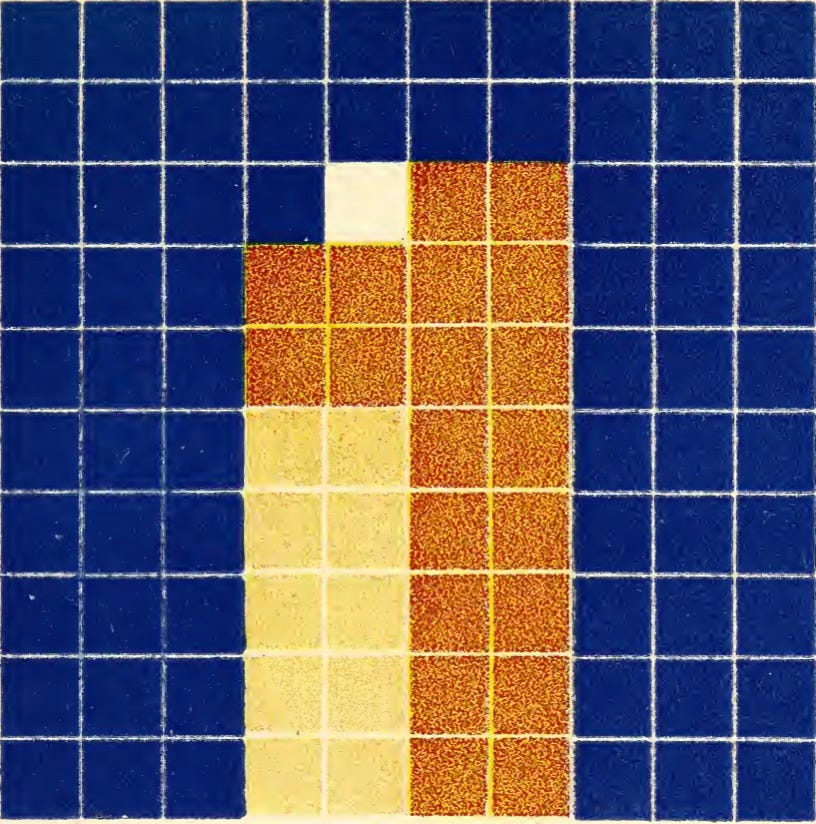
Dear Friends,
“Doubtlessly a separate, irreplaceable sensation exists in each of us, which if we don't find and isolate in time, and cohabit with later, and fill with visible acts, we're lost.” These are the words of the Greek poet Odysseas Elytis, from my favorite of his books, translated into English by poet Olga Broumas as The Little Mariner.*
Elytis is a poet of sun, wind, and salt; of islands, and the sea that surrounds them. His islands are the Greek archipelago, and his sea is the Aegean. His book, The Little Mariner, charts a voyage which is at once physical and lyrical. The poet departs in search of the “gold wind of life,” wanting to know, “why don’t you reach us?” What the poet finds is that the wind of life is found everywhere among the islands of his home and his soul, “But inconceivably, no one hears.”
Back in the nineties I transcribed many of Elytis’s lines into my notebooks. Including this:
“The poet must be generous. Trying not to lose even a moment of your supposed talent is like trying not to lose a cent of interest on the small principle given you. Poetry is not a bank. It is the antithesis, precisely. If a written text can be shared, so much the better. If not, it’s all right. What must be practiced—assiduously, infinitely, and without the slightest pause—is antiservitude, noncompliance, and independence. Poetry is the other face of Pride.”
Recently, I’ve been wondering what it would be like to inhabit this generosity and this sense of voyaging as I offered my attention to works of art and the things of the world.
— Sal
*Broumas tells us that “The Greek word is nautilus, an archaic form of sailor, with a secondary meaning of the nautilus shell.”
Islands
Odysseas Elytis, selections from “Anoint the Ariston” in The Little Mariner, (translated by Olga Broumas).
XXI
I express myself as bergamot in the morning air. The filtration no one else perceives is what counts. Through social struggle, through the yearning for justice and freedom, through man’s inalienables: an aroma!
A person is never as large or as small as the meanings he grasps, from the Angel to the Demon. It’s like the space left when these two rival forces self-destruct. If it pleases me to refer to a tree’s nobility or turn answers to riddles, it’s for this: to understudy the child I was and have again on hand, entirely for free, that endless visibility, the mightiest and most enduring of revolutions.
I was looking at what fit the large square window: some scorched land, a stripe of deep blue surf. Later, in my sleep, three in the afternoon, I saw Hermes descending from the sky, leg flexed, holding a small girl in his arms, head upside down, her hair poured by the wind.
XXV
A transliteration of the sound achieved by the pafflapping of small surf, while the moon gains distance and the house draws near the shore, could reveal a lot. About the crowns of the senses, for one. Where gentleness, supplanting power, always arrives first: a glowing pistachio-green, the pebble lit, the wind’s solitary footsteps on the leaves. Or else: something frontal, a dome, rendering nature linear as the surf’s purl turns the Greek tongue ecumenical.
Learn to pronounce reality correctly.
XXVI
Pronounce reality as the sparrow does the dawn. And approach it as a ship does Serifos or Milos. Where mountains unfold one from the other until the splendid cone with its white houses is revealed; one island divided in two or three; and the perpendicular boulder is seen up close, to hold the most virgin white embrace. Profound penetration into the senses and simultaneously constant reversal of any utilitarian concept about the nature of the material world.
Nowhere did I feel my life so justified as on a ship’s bridge. Everything in its proper place: sheet metal, pipes, screws, cables, flotation devices, airshafts; and I myself inscribing the constant transformation by remaining fixed. A full, self-sufficient and organized world that responds to me, adn I to it, and together we penetrate miracle and danger as one body.
Enduring ship, my land.
XXVIII
We walk thousands of years, we call sky “sky” and the sea “sea.” All things will change one day and we too with them, but our nature will irretrievably be carved on the geometry we disdained in Plato. And in it, when we bow, as sometimes we bow over the waters of our island, we’ll find the same brown hills, inlets and coves, same windmills and the same abandoned chapels, the small houses leaning on each other and the vineyards asleep like children, the dovecotes and the domes.
I don’t mean these themselves. I mean the soul’s same natural and movements that generate matter and order it in a specific direction; the same pulses, the same lifting up toward the deeper meaning of a humble Paradise, which is our true self, our justice, our freedom, our second and true ethical sun.
Exercise: Islands
Choose an object of attention, or let it choose you. Set aside some time; prepare for your voyage. Pack only what you most love to serve as compass and as sustenance.
Set sail into the object of your attention, perceiving its nature as an island-scattered sea. Feel the sun, the wind, and the salt on your skin. Listen to the sound of water. Scan the horizon for what surprises.
Among the islands, look for your self and your true home. Bring something back if you can.
As with all of these “Ways of Seeing,” the initiating impulse is to expand our possibilities for engaging with works of art and deepening attention. These exercises are perfect for time spent in museums, galleries, and studios. You can also bring them into the rest of your life and experiment with streets, libraries, parties, landscapes. Try them as writing or art-making prompts.
These practices work best if you give them some time, at least twenty minutes or a half-hour. This is easier to do if you set a timer.
As ever, interpret these instructions freely and intuitively.
Share your results and reflections in the comments. I’d love to hear from you.
Odysseas Elytis
The Little Mariner by Odysseas Elytis (translated by Olga Broumas) was published by Copper Canyon Press. It is no longer in print, but can be found for reasonable prices on the used book market.
Eros, Eros Eros, Odysseas Elytis Selected and Last Poems, translated by Olga Broumas, is available from Copper Canyon Press. It includes sections of The Little Mariner as well as other works by Elytis.
Online
You can find a generous selection of Odysseas Elytis poems at the Poetry Foundation, including others from The Little Mariner.
Odysseas Elytis’s Collected Poems can be borrowed from The Internet Archive. Open Papers, Elytis’s selected essays, can also be borrowed.
Further adventures and new ways of seeing can be found in my book, The Uses of Art.
Artist Sal Randolph’s THE USES OF ART is a memoir of transformative encounters with works of art, inviting readers into new methods of looking that are both liberating and emboldening.
Dazzlingly original, ferociously intelligent.
— Michael Cunningham
A joyful, dazzling treasure-box of a book.
— Bonnie Friedman
Here’s a guide, to waking up, over and over again.
— Roshi Pat Enkyo O’Hara





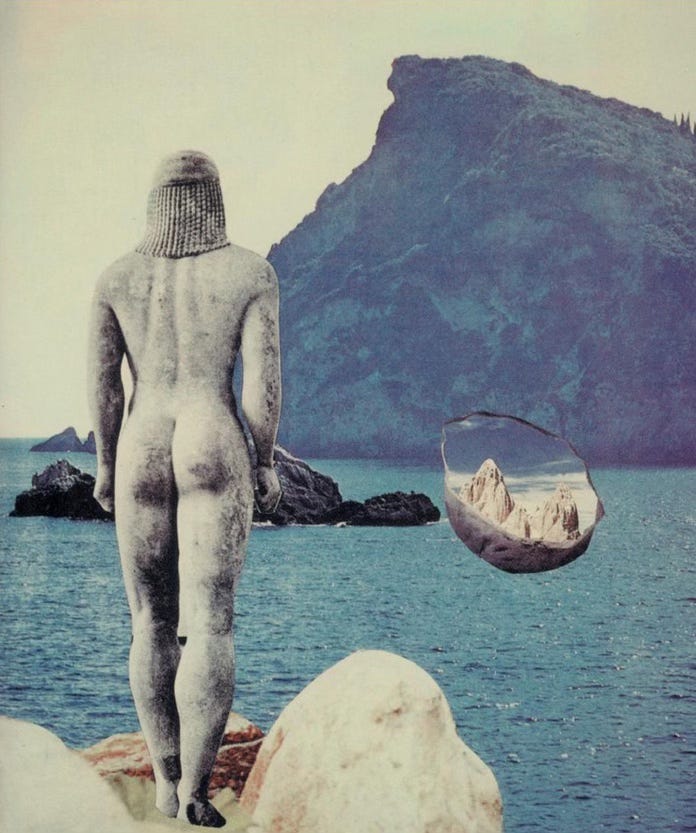
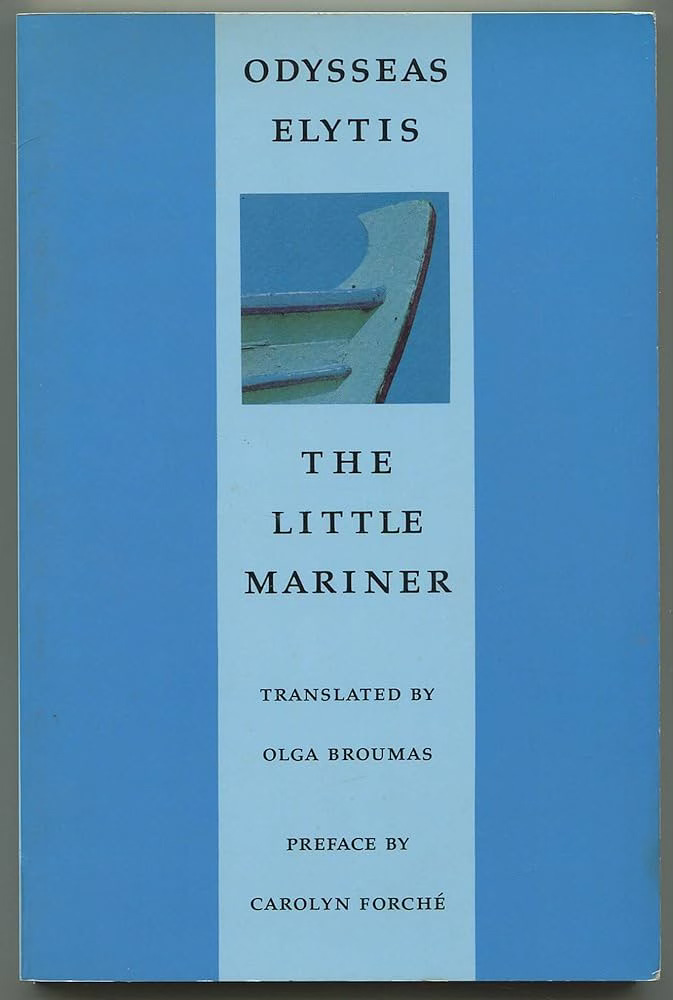
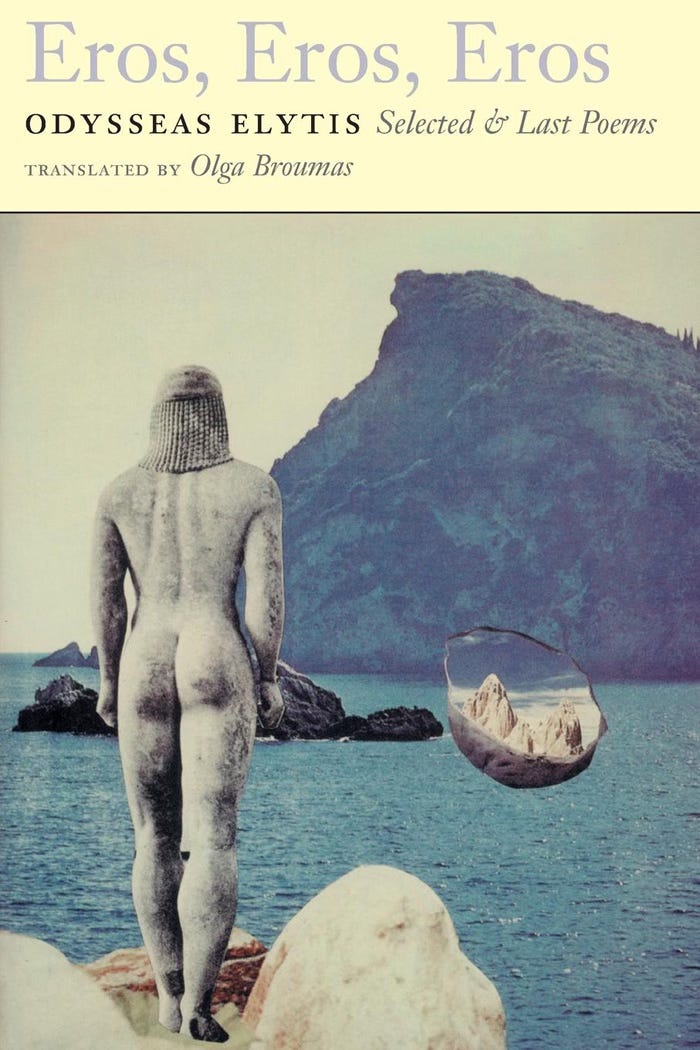
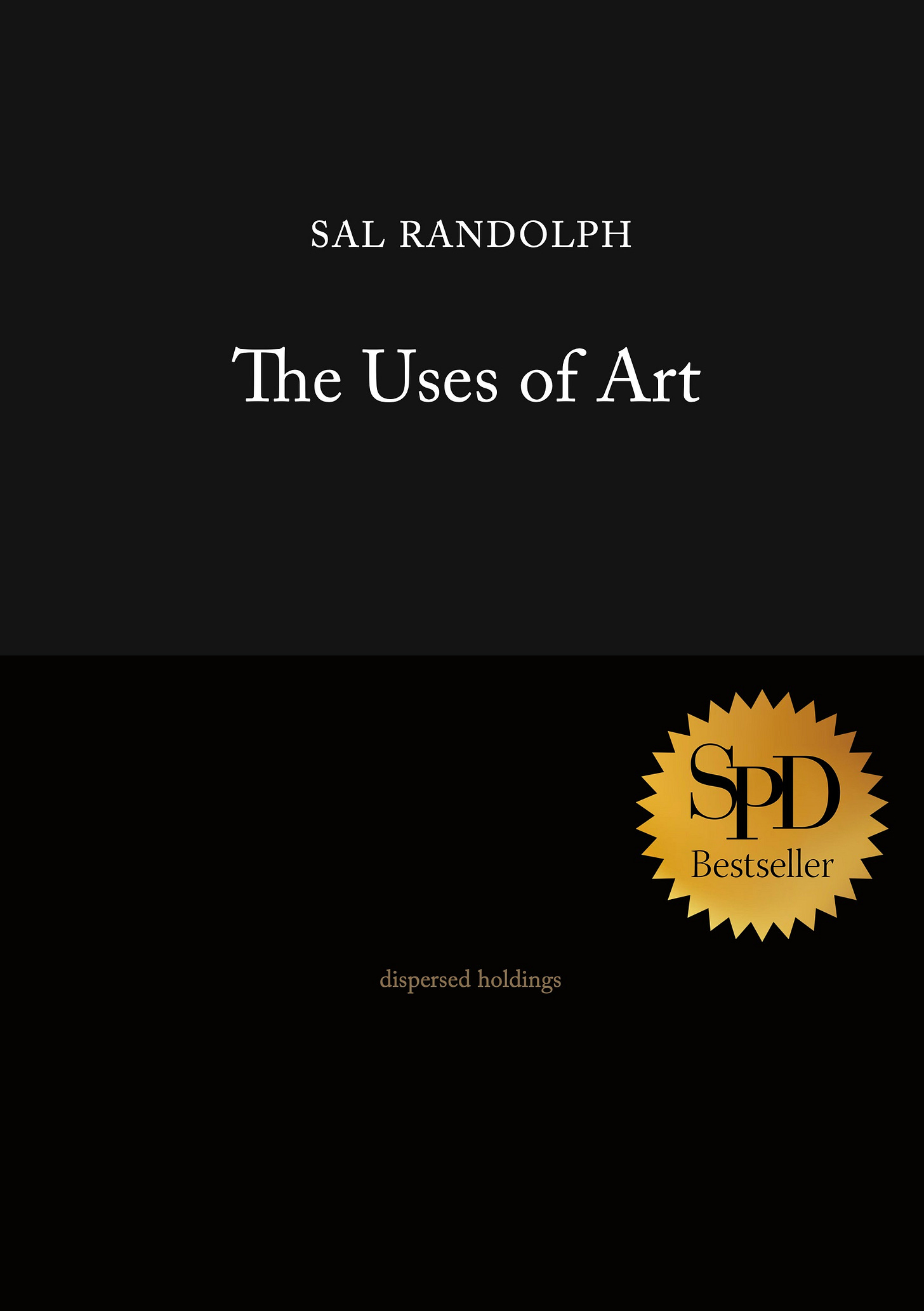
Wonderful post! Love the Emily Noyes Vanderpoel works - gonna be digging through them! :-)
Thoughtful exercises!